New Jersey Bans Sports Betting Partnerships with Colleges
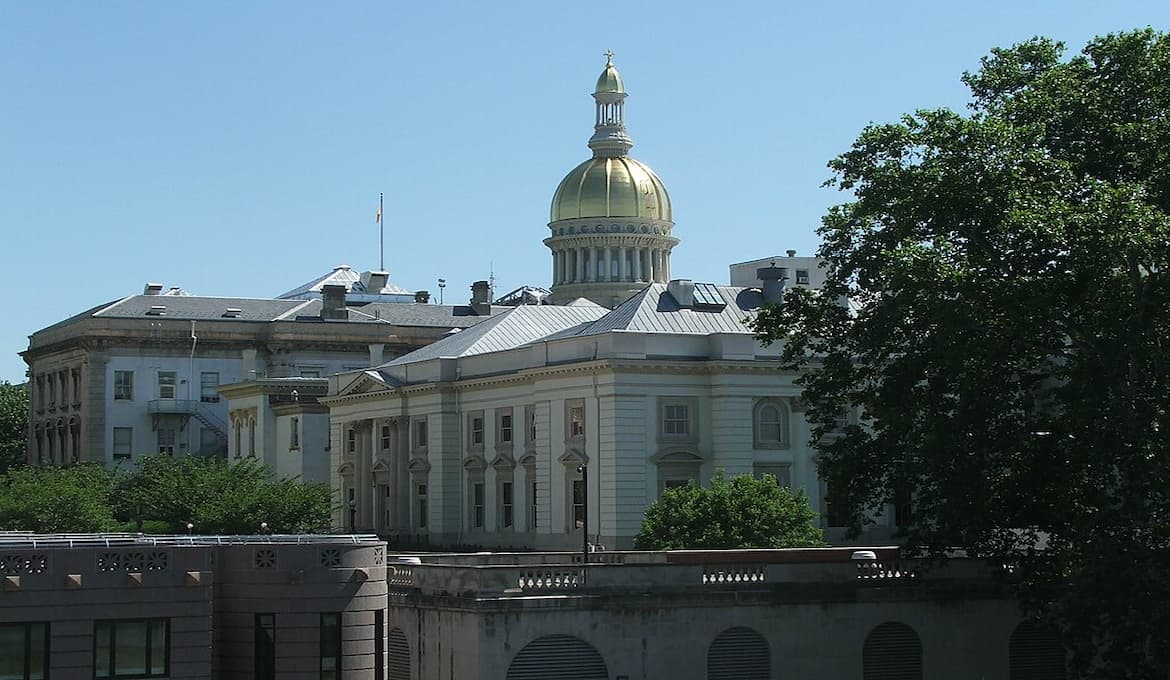
Photo by Marion Touvel, Public domain, via Wikimedia Commons
Key Takeaways
- Gov. Phil Murphy signed a bill banning college sports betting partnerships
- 30 New Jersey colleges will be affected by the ban
- The state raised its iGaming tax rate to 20% earlier this year
The Garden State is taking another step towards protecting young bettors this week.
New Jersey Governor Phil Murphy has signed bill A4113, which will create a ban on in-state public colleges partnering with sports betting operators. It means sportsbooks will no longer advertise at stadiums and arenas, or on any in-stadium broadcasts. The bill is intended to help protect college-age bettors, who tend to be more vulnerable to problem gambling.
With the ban being signed into law, New Jersey joins a growing list of states to put an end to sports betting partnerships at the college level.
Bills Look to Protect Young Bettors
Sports betting has expanded quickly in the US, including on college campuses. Young students are being introduced to the industry before they understand it, leading to irresponsible betting patterns. This is creating life-altering consequences for 21 and 22-year-olds, threatening a whole generation of Americans.
“The proliferation of sports betting by college students is a troubling trend that can have a destructive impact on their lives,” Senator Joe Cryan shared in a press release. “Young people are especially vulnerable to compulsive gambling and can have a difficult time breaking the habit once it becomes ingrained. This will help protect them from the negative influences of advertisements that promote the practice. Our college campuses should be places for learning, not underage gambling.”
A total of 30 New Jersey public colleges will be affected by the change.
Is a Ban on College Player Props Next?
In addition to the new ban, lawmakers in New Jersey are also considering bill S3080. It proposes to ban college player prop bets to better protect athletes. It would not only remove the temptations of spot-fixing but also protect college athletes from growing harassment from angry bettors.
The introduction of S3080 was in response to calls from NCAA President Charlie Baker. He has been sounding the alarm about the harassment of athletes. Many states have since passed bans on the controversial bet type, but lawmakers in New Jersey have yet to.
The bill is currently awaiting a Senate floor vote.
New Jersey Lawmakers Focus on Sports Betting
We are just over halfway through 2025, but lawmakers in the Garden State have already spent a lot of time discussing gambling. In addition to the bills focusing on protecting college athletes and students, the state also successfully raised its tax rate for operators from 13% to 20%. This brings the state up to the national average after a proposal for a higher hike was rejected.
New Jersey also seems poised to enact a ban on sweepstakes casinos and sportsbooks. While there is a push to crack down on the industry with new regulations, some lawmakers want the industry banned altogether. If passed, it is expected to send customers to regulated sportsbooks, which will further increase the tax revenue generated.
Michael is a writer from Denver who covers the sports betting industry for Casino.com. He has been covering the industry for over four years, focusing on providing accurate and easy-to-understand information for readers. When he’s not covering the industry, he’s betting on sports or exploring everything that Colorado has to offer.
Related News

FanDuel and DraftKings Approved for Arkansas Mobile Market
FanDuel and DraftKings have approval to launch their mobile platforms in Arkansas. The two operators had been avoiding the market over its tribal revenue-sharing requirements. They will be joining tribal-owned BetSaracen, the state's only other online platform.

New Zealand Anthem Gaffe Goes Viral Before England v Black Caps T20 Clash
A technical glitch played the New Zealand anthem at double speed in Colombo, moments before England’s late chase win shook semi-final maths.

Kalshi Taking Utah to Court After Comments From Lawmakers
Kalshi filed a preemptive lawsuit against Utah after top lawmakers expressed opposition to the prediction market industry. The operator feared a cease-and-desist letter would soon be coming, forcing it to shut down the platform in Utah.
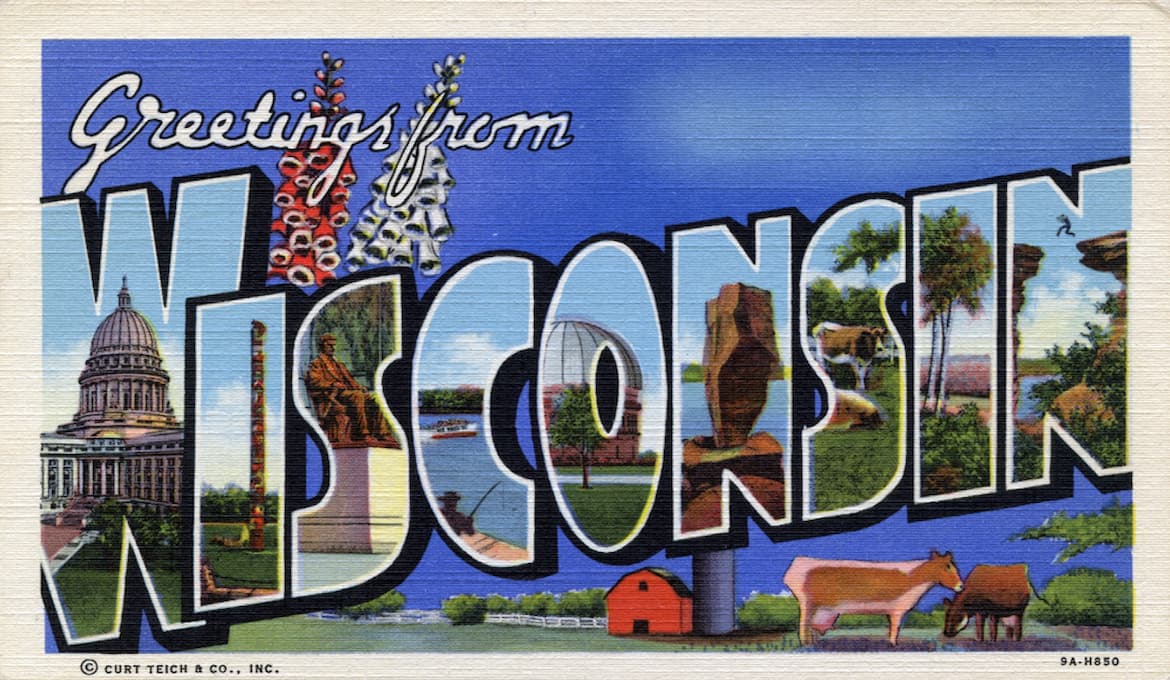
Wisconsin Assembly Finally Signs Off on Mobile Betting
The Wisconsin Assembly passed AB 601, which proposes to create a tribal-run online sports betting market. It ends years of debate and stalling from lawmakers, who abandoned hopes for a commercial market. The bill will now head to the Senate.

Kalshi Wins Big in Tennessee, but New Threats Emerge
Kalshi has scored a major legal win in Tennessee, keeping its prediction platform live in the state. However, talks of a ban on predictions in Connecticut and a trademark fight with the NCAA are making the win harder to celebrate.

Winter Olympics Betting Buzz in NZ after Zoi Sadowski-Synnott’s Silver
Zoi Sadowski-Synnott’s silver has lifted Winter Olympics interest in NZ, but only TAB can legally offer and promote sports betting to Kiwis.

South Carolina Lawmakers Hear Debate Over Sports Betting
South Carolina House lawmakers held a hearing on a bill to legalize sports betting, despite Governor McMaster's strong objections to the industry. The Senate is considering a similar bill, with both looking for up to eight sportsbook licenses.

Tabcorp Pays $158,400 after ACMA Probe Finds Illegal In-play Bets
Tabcorp paid a $158,400 penalty after accepting 426 online in-play tennis bets. ACMA will oversee fixes through an enforceable undertaking.
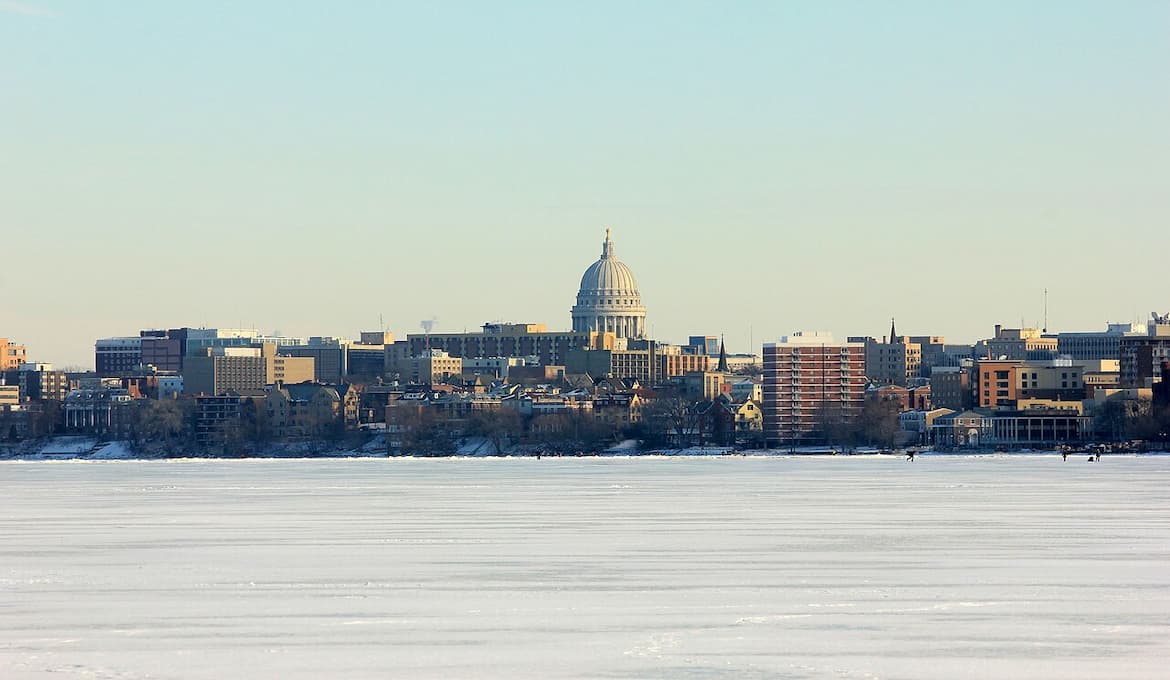
Wisconsin Tribes Ask Lawmakers to Expand Sports Betting
Tribal leaders have asked Wisconsin lawmakers to pass an Assembly bill legalizing mobile sports betting. The session ends next Friday, raising fears that the chamber will adjourn without voting on the issue, as they did in 2025.

CFTC to Begin Fierce Defense of Sports Prediction Markets
CFTC Chair Michael Selig wrote an op-ed in the Wall Street Journal, promising a fierce defense of sports prediction markets here. He ripped states for standing in the way of the industry, which he believes benefits average Americans.

The DIA Orders 20Bet to Stop Targeting Kiwis with YouTube Gambling Ads
New Zealand’s DIA has issued a formal notice to 20Bet over NZ-targeted YouTube promotions, reinforcing the ban on offshore casino advertising.

Big Ten Athletes Join Effort to Reform Player Props
A Big Ten student-athlete group has issued a statement calling on NCAA President Charlie Baker to reform player prop betting rules. The letter cites the link to rising cases of athlete harassment, which Baker has been warning states about.

Kalshi Delivers on High Expectations for Super Bowl LX
Kalshi recorded over $1 billion in trading volume for Super Bowl LX, up 2,700% from last year, driven by expanded markets and improved pricing. The prediction app was downloaded at more than double the rate of DraftKings and FanDuel.
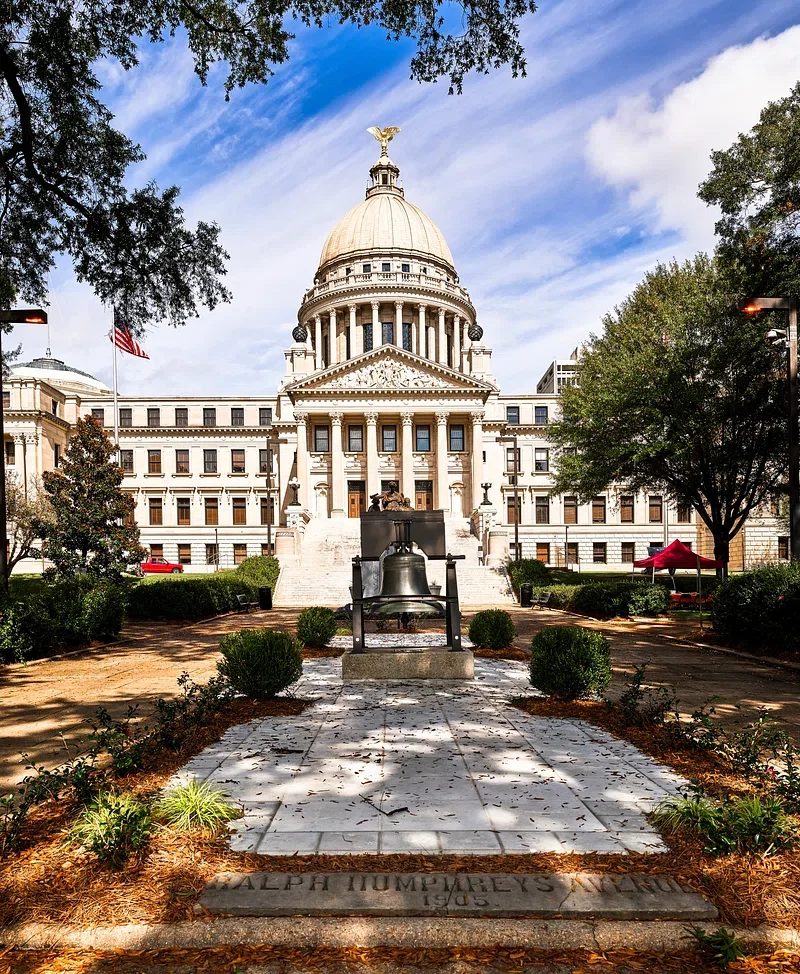
Sports Betting Bill Passes Mississippi House to Start 2026
The Mississippi House has passed HB 1581, which would expand the state’s retail sports betting market to include mobile wagering. It is the second consecutive term a bill has passed the House, but hurdles remain in the Senate.

Guardians’ Emmanuel Clase Spot-Fixing Linked to 48 Games
New documents show federal prosecutors have linked Emmanuel Clase’s point-shaving scandal to 48 MLB games over two years. The large number of affected games is a troubling sign and will further challenge the integrity of the league.
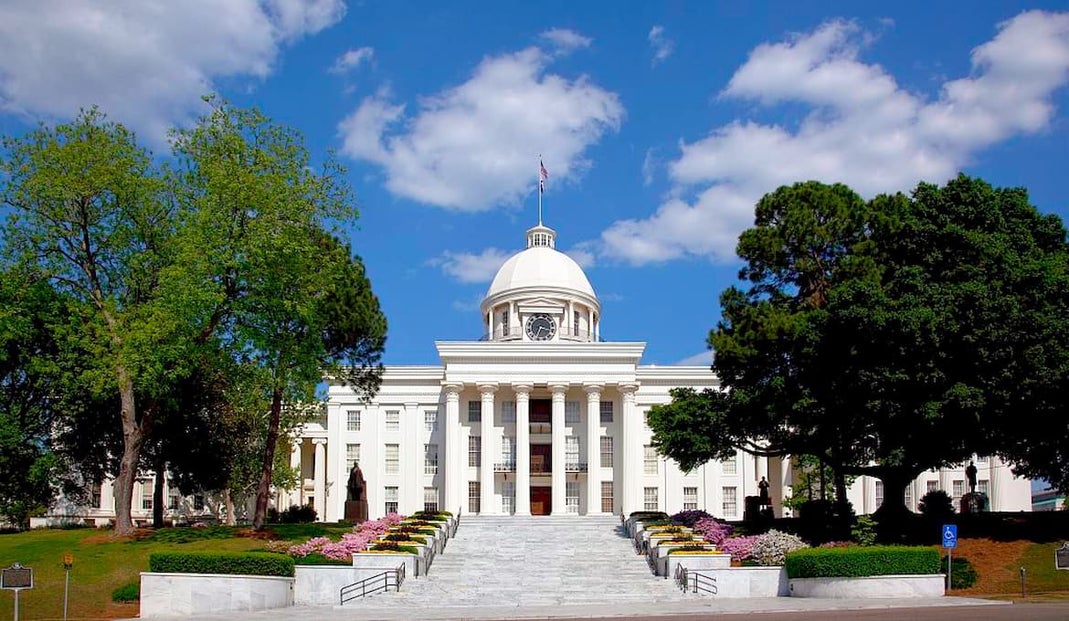
Alabama Considering Bill to Put Sports Betting on the Ballot
The Alabama Senate is considering a bill that would allow voters to decide whether to expand gambling in the state, including a sports betting market. The House has passed several sports betting bills in the past, but the Senate has rejected each.

Milano Cortina 2026: New Zealand Athletes and Betting Markets to Know
New Zealand’s 17-athlete Milano Cortina 2026 team leans heavily into freeski and snowboarding. Here are the events, market types and timing angles NZ bettors track.

Bill to Legalize Online Sports Betting Introduced in Hawaii
The Hawaii Senate is considering a bill to legalize online sports betting. It proposes a market with at least six operators. The 15% annual tax rate and $500,000 licensing fee are intended to secure additional support in the House.

Missouri Sports Betting Market Sees $540 Handle in First Month
The Missouri Gaming Commission reported a sports betting handle of over $540 million for December, the first month of the state's legal sports betting market. FanDuel and DraftKings led the way, but the state generated just $510,000 in taxes.
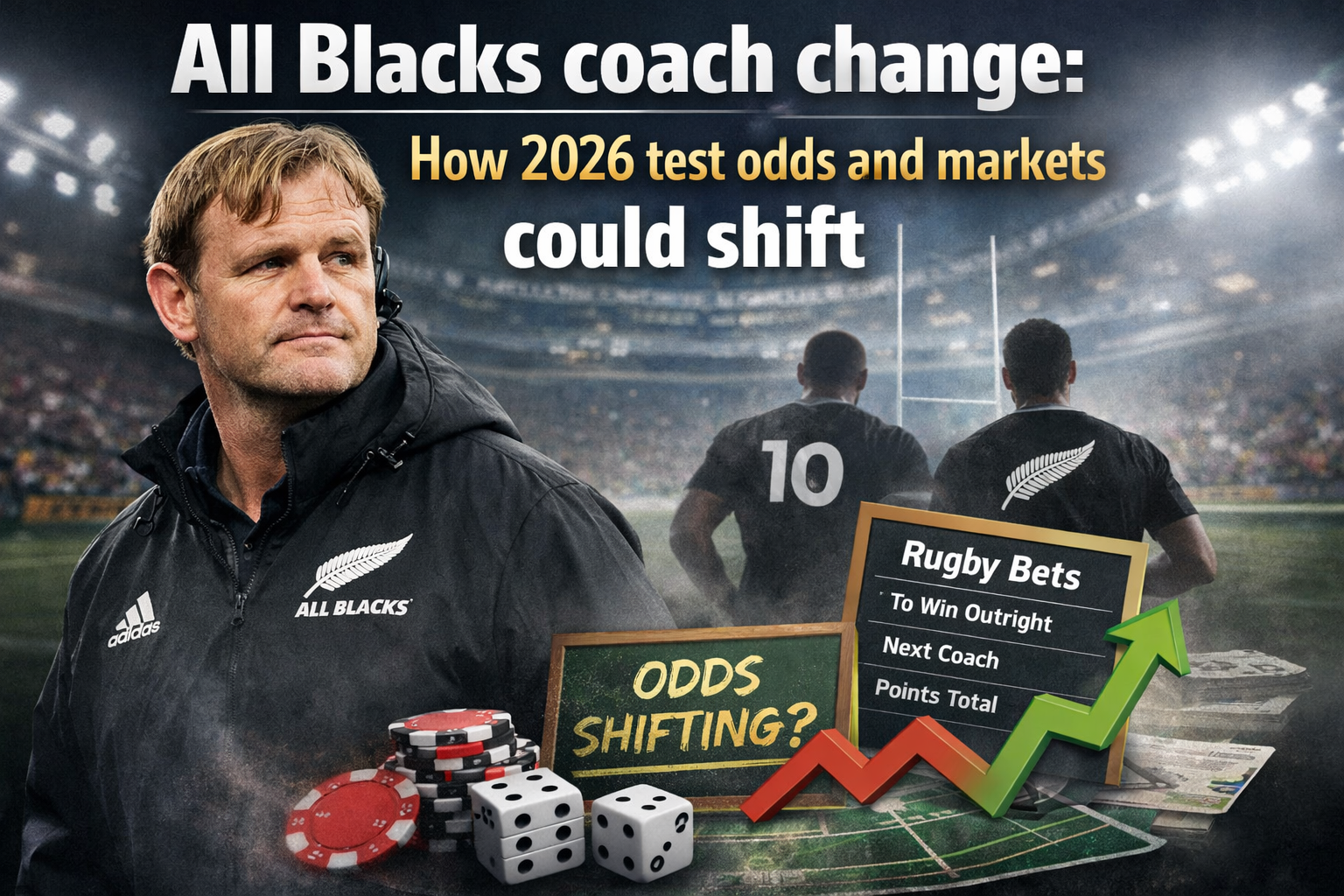
All Blacks Coach Change - How 2026 Test Odds and Markets Could Shift
New Zealand Rugby has parted ways with Scott Robertson halfway to the 2027 World Cup. Here’s what happens next and what bettors should track in 2026.

Ohio Governor DeWine: Sports Betting Was My Biggest Mistake
Ohio Governor Mike DeWine believes his biggest mistake was legalizing sports betting, citing the rise in problem gambling and betting scandals in the state. He also called for a crackdown on sportsbooks' advertising, which he links to the rise in addiction.

Missouri Sports Betting Market to Allow College Player Props
The Missouri Gaming Commission announced it is rejecting the NCAA's request to ban college player props in its new regulated sports betting market. The regulator cited a lack of evidence on the risk of the bet type for its decision.

Action 24/7 Ceases Sportsbook Operations in Tennessee
Action 24/7 has announced it is ceasing operation in Tennessee, its only US sports betting market. The sportsbook’s ties to the payday loan industry and poor oversight led to several scandals over its nearly six years of operation.

Ontario Regulator Fines FanDuel Sportsbooks Over Match-Fixing
An Ontario regulator has fined FanDuel Sportsbook $350K for failing to promptly catch and report a betting scandal involving a table tennis tournament. Online sportsbook operators had been warned that match-fixing might occur, but failed to prevent it.

US Attorney Charges 15 NCAA Athletes Over Match-Fixing
A US Attorney has filed federal charges against 15 current and one former NCAA men's basketball players in connection with a massive point-shaving scheme. A total of 17 Division I schools and 29 games were listed in the indictment.

The Biggest Takeaways From Kambi’s 2025 Betting Trends Report
We are sharing our biggest takeaways from Kambi’s 2025 Sports Betting Trends Report, which provides key insights into the industry. We’ll cover which sports bettors wagered on, the impact of player prop bets, and the dominance of the NFL.
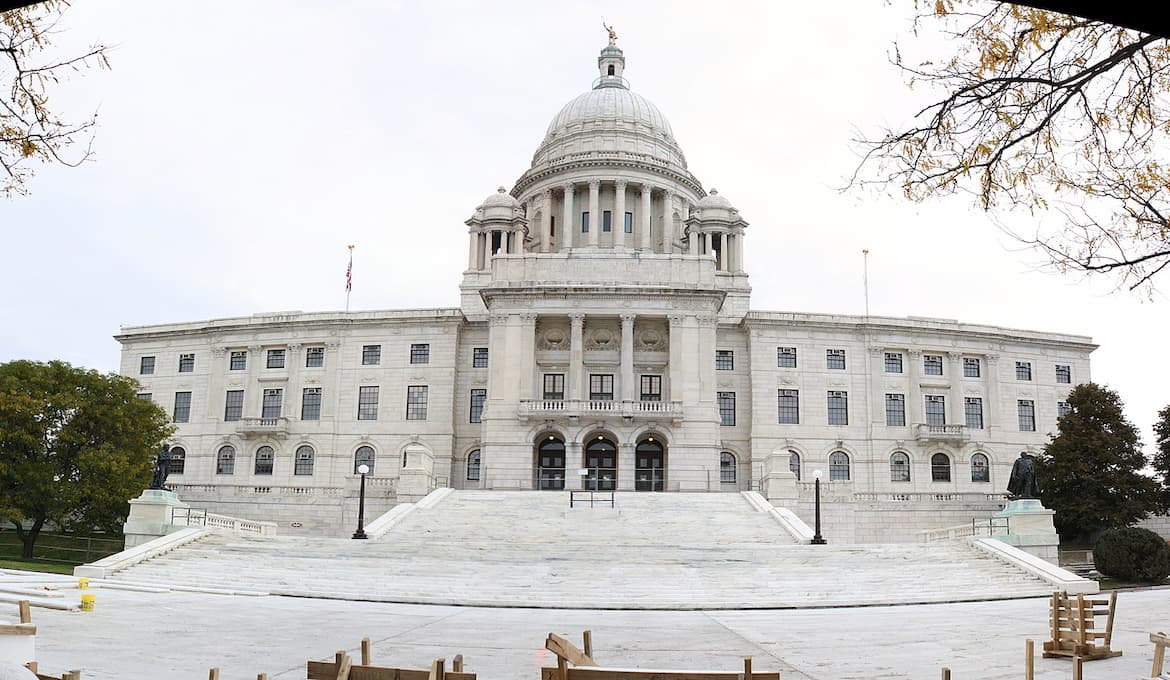
Rhode Island to Add Second Online Sportsbook in November
The Rhode Island Lottery has opened up the bidding process for a new online sportsbook license. SportsbookRI has been the only legal platform in the state since 2019, but growing complaints from bettors drove lawmakers to expand the market.

Entain’s TAB New Zealand Takeover - What’s Changed Since Early Concerns Emerged
Entain faced early scrutiny after taking over TAB New Zealand in 2023. We look at what’s changed since and whether further action followed.

Four A-League Players Banned Over Betting-Linked Match Fixing
Football Australia has issued lengthy bans to four former A-League players for match-fixing linked to betting activity.

Super Bowl LX Will Test Impact of Prediction Industry
Next month’s NFL Super Bowl will feature an expanded sports prediction industry, providing a gauge of its performance relative to sports betting. It will also test the new sports prediction platforms launched by Fanatics, FanDuel, and DraftKings.

BetRivers Sportsbook Announces New $5 Bet Minimum in Illinois
BetRivers Sportsbooks will be raising its minimum bet requirement to $5 in Illinois. It recently raised it to $1 after the state increased taxes. The new change comes just days after Chicago enacted a new city-specific license and tax system.

Wisconsin, Mississippi Eye Sports Betting Expansion in 2026
Lawmakers in Mississippi and Wisconsin are back in session and already discussing expanding their sports betting markets to include mobile sportsbooks. While changing conditions are giving proponents hope that the efforts will succeed, larger hurdles still remain for both states.

Las Vegas Raiders Part Ways with Veteran Coach Pete Carroll After One Season
Raiders fire NFL’s oldest coach Pete Carroll (74) after the league’s worst season of 3-14, forcing another coach search for the third year in a row.


